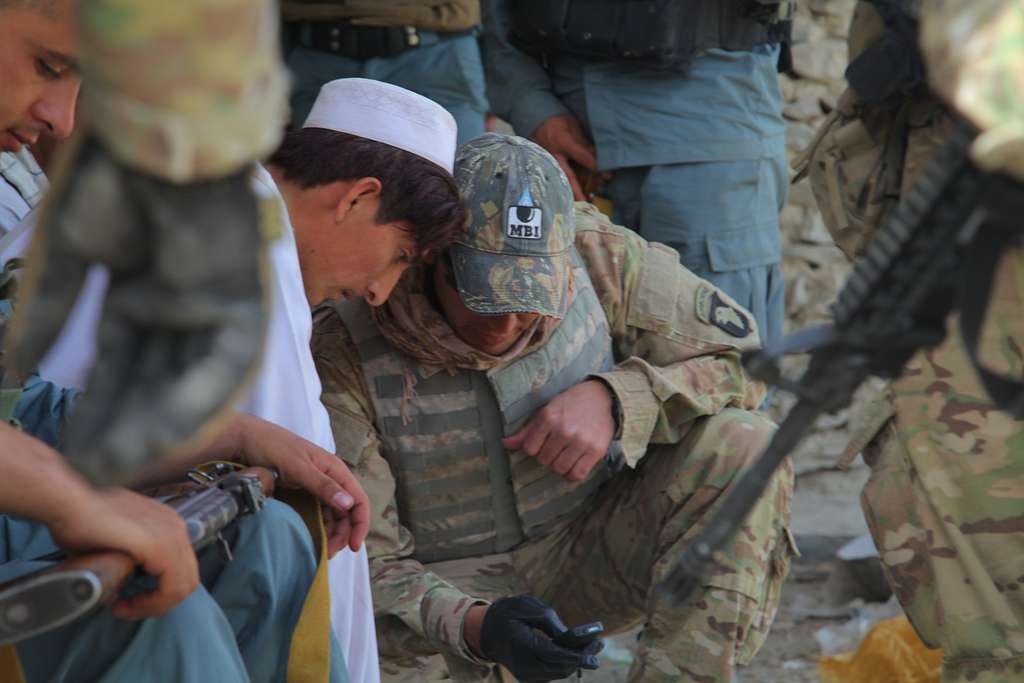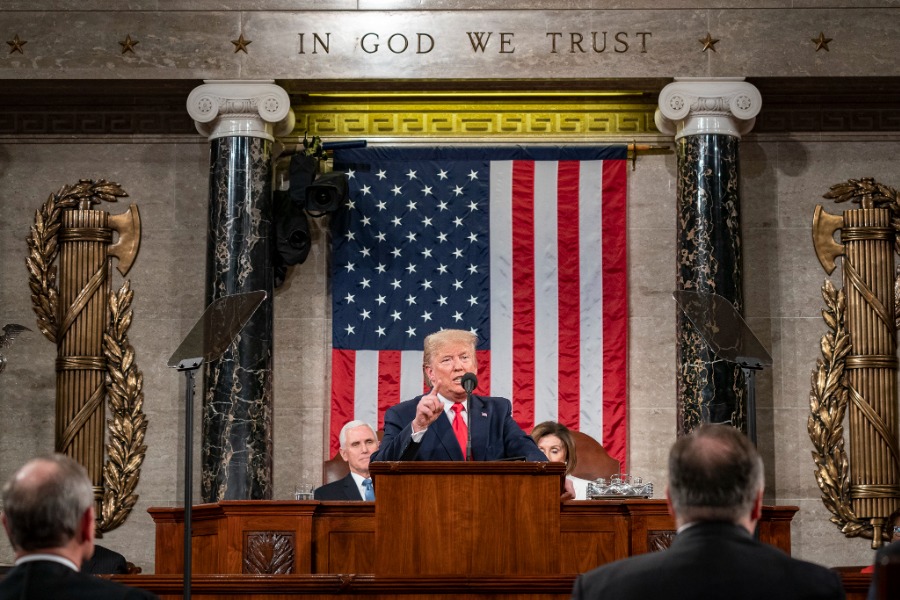The Relatively Weak Article II Basis for Bombing Iraq and Syria (and, Remember the President’s August 31, 2013 Speech?)
I explained yesterday why I believe the administration has a straightforward argument for relying on the 2002 Iraq AUMF if it chooses to use force against ISIS in Iraq. (Bobby and Wells disagree, and they may be right, but I note that such purposivist arguments to limit the text of the operative authorization have not been persuasive t
Published by The Lawfare Institute
in Cooperation With

I explained yesterday why I believe the administration has a straightforward argument for relying on the 2002 Iraq AUMF if it chooses to use force against ISIS in Iraq. (Bobby and Wells disagree, and they may be right, but I note that such purposivist arguments to limit the text of the operative authorization have not been persuasive to the administration or courts in the interpretation of the 2001 AUMF.) Bobby further says that if airstrikes occur, “I’m pretty sure the argument will be Article II and only Article II.” He might be right, but it is worth pointing out the weak basis for relying on Article II alone in this context. We can set aside hard questions about foundational constitutional limits on the President’s power to use force abroad unilaterally without congressional authorization. Even if we focus only on Executive branch precedents, which embody a broad view of presidential power, reliance on Article II alone is a stretch.
The OLC precedents (here is the latest public one) maintain that the President can use force abroad without congressional authorization if the use of force (1) serves sufficiently important national interests, and (2) has a relatively limited scope and duration so as not to constitute “War” that would require congressional approval. The difficult prong to satisfy in Iraq (and Syria) is (1). Traditionally the “national interest” criterion was satisfied if the President was acting to protect U.S. persons and property. Anything that goes beyond that requires special justification, for if the “national interest” is unmoored from protecting U.S. persons and property and interpreted too broadly, there is no effective legal limit on the President’s unilateral power to use of force, since U.S. national interests are so capacious. As I have previously explained, one factor that OLC has relied on in support of a sufficiently important national interest is a U.N. Security Council authorization (or NATO approval, in Kosovo) for the intervention. Such authorizations are objective indicators of the need for stability in the region and the importance of the action, and also implicate an independent national interest in upholding the integrity of U.N. Security Council Resolutions. Whatever one thinks of such reliance on international organizations (many think it's bunk), OLC’s Libya opinion (as I once explained) used this type of argument aggressively. As I also explained (here and, more briefly, here), the planned (but aborted) intervention in Syria would have smashed even the Libya precedent, for it would have defined the national interest in regional security that justifies intervention even in the absence of a U.N. Security (or NATO etc.) resolution – i.e. in the President’s discretion. It appears that intervention in Iraq would go even further, for it has neither the cover of the Security Council or NATO, nor the fig leaf of upholding the international prohibition on chemical weapons that the administration invoked in Syria.
Several caveats to this conclusion.
First, if the President could justify intervention in Iraq on the basis of protecting U.S. persons or property, he would be on much stronger constitutional ground. I doubt that the nature and scope of any such attacks would fit the need to protect American persons and property, but some prior OLC opinions state that legitimate interventions to protect U.S. citizens can also justify protection of non-U.S. citizens.
Second, the administration will almost certainly rely on the consent of the government of Iraq for the strikes. Such consent has never been a sufficient basis for the unilateral use of force under domestic constitutional law, and it is hard to see how it could be, for that would in effect delegate a constitutional power to authorize the use of force to a foreign government. Foreign government consent has been invoked in OLC opinions on the constitutionality of the use of force (notably, here and here*), but only, at most, for satisfying the other prong of the constitutional test (why the intervention is not “War”), and only in the context of actions supported by the United Nations or NATO. Consent has never(to my knowledge) been relied on for the existence of a national interest in the unilateral use of force, the quite different issue in Iraq. And of course consent would not work for targeting ISIS in Syria. Foreign government consent is deeply relevant to the legality of the use of force under international law, but not so much to the constitutional law analysis. (For a contrary view, that ties the legality of intervention under international law (by consent or other mechanisms) to the constitutionality of the use of force, see this analysis by Marty.)
Third, there is the Kosovo precedent. I have explained why Kosovo is not much of a precedent for several reasons, and in any event Kosovo at least had regional authorization (and thus an objective and limiting “national interest” justification) that Iraq lacks.
All that said, if the administration relies on Article II, expect it to rely heavily on these three factors – the presence of Americans in Iraq, the Iraq government’s consent, and the Kosovo precedent.
A final note. If the President relies on Article II rather than the 2002 AUMF, it will be interesting to see how he distinguishes this speech, from last August.
But having made my decision as Commander-in-Chief [to use force in Syria] based on what I am convinced is our national security interests, I’m also mindful that I’m the President of the world’s oldest constitutional democracy. I’ve long believed that our power is rooted not just in our military might, but in our example as a government of the people, by the people, and for the people. And that’s why I’ve made a second decision: I will seek authorization for the use of force from the American people’s representatives in Congress. . . . Yet, while I believe I have the authority to carry out this military action without specific congressional authorization, I know that the country will be stronger if we take this course, and our actions will be even more effective. We should have this debate, because the issues are too big for business as usual. . . . A country faces few decisions as grave as using military force, even when that force is limited. I respect the views of those who call for caution, particularly as our country emerges from a time of war that I was elected in part to end. But if we really do want to turn away from taking appropriate action in the face of such an unspeakable outrage, then we just acknowledge the costs of doing nothing.These principles apply to Iraq today as well as they did to Syria last summer. And they are easier to satisfy here than last summer, for there appears to be more support in Congress for intervention now in Iraq than for intervention last summer in Syria. I have no idea if the President will seek authorization for intervention in Iraq. But if he doesn’t, then I expect the administration to rely on congressional authorization in the 2002 AUMF in addition to Article II, if for no other reason than to deflect the import of the President’s words last August. * An OLC opinion I authored justifying deployment of U.S. armed forces in Haiti in 2004 also relied on the consent of the foreign government, but for the War Powers Resolution analysis, not the constitutional analysis.
Jack Goldsmith is the Learned Hand Professor at Harvard Law School, co-founder of Lawfare, and a Non-Resident Senior Fellow at the American Enterprise Institute. Before coming to Harvard, Professor Goldsmith served as Assistant Attorney General, Office of Legal Counsel from 2003-2004, and Special Counsel to the Department of Defense from 2002-2003.





